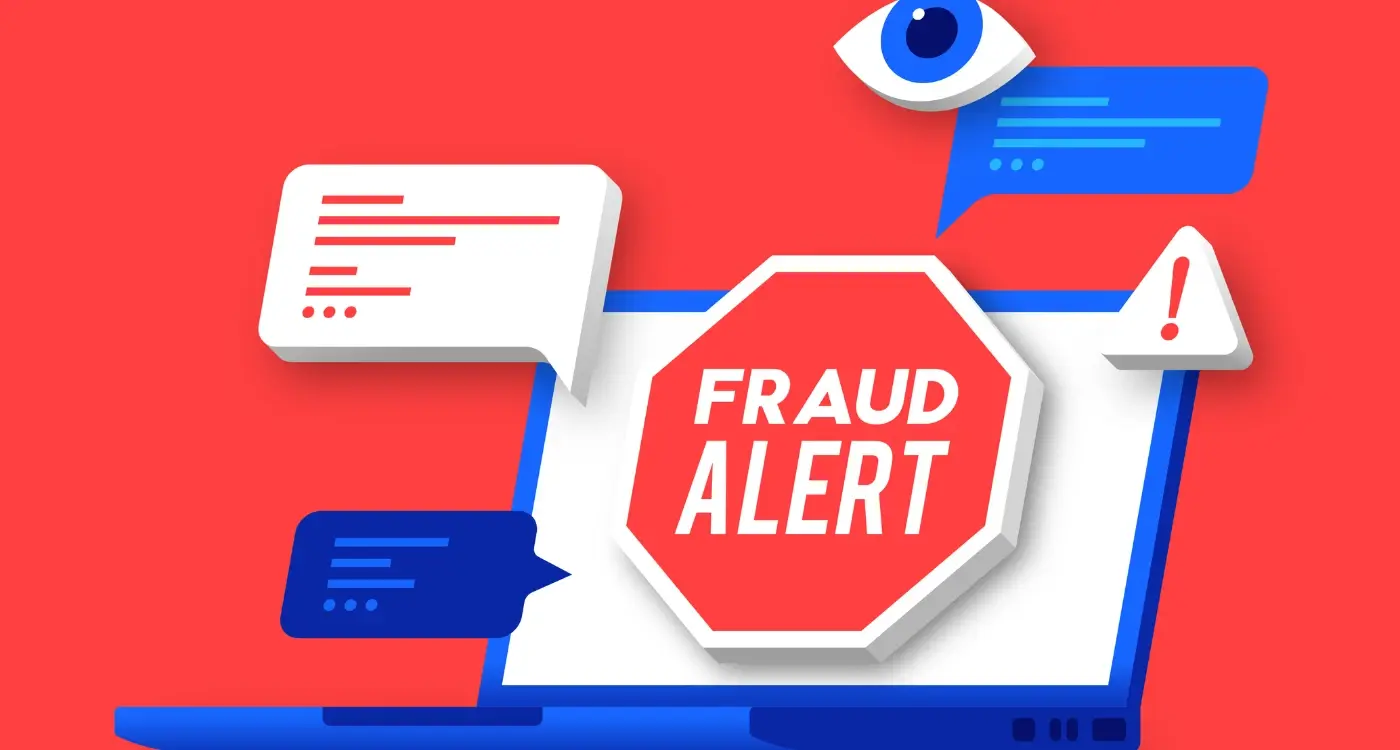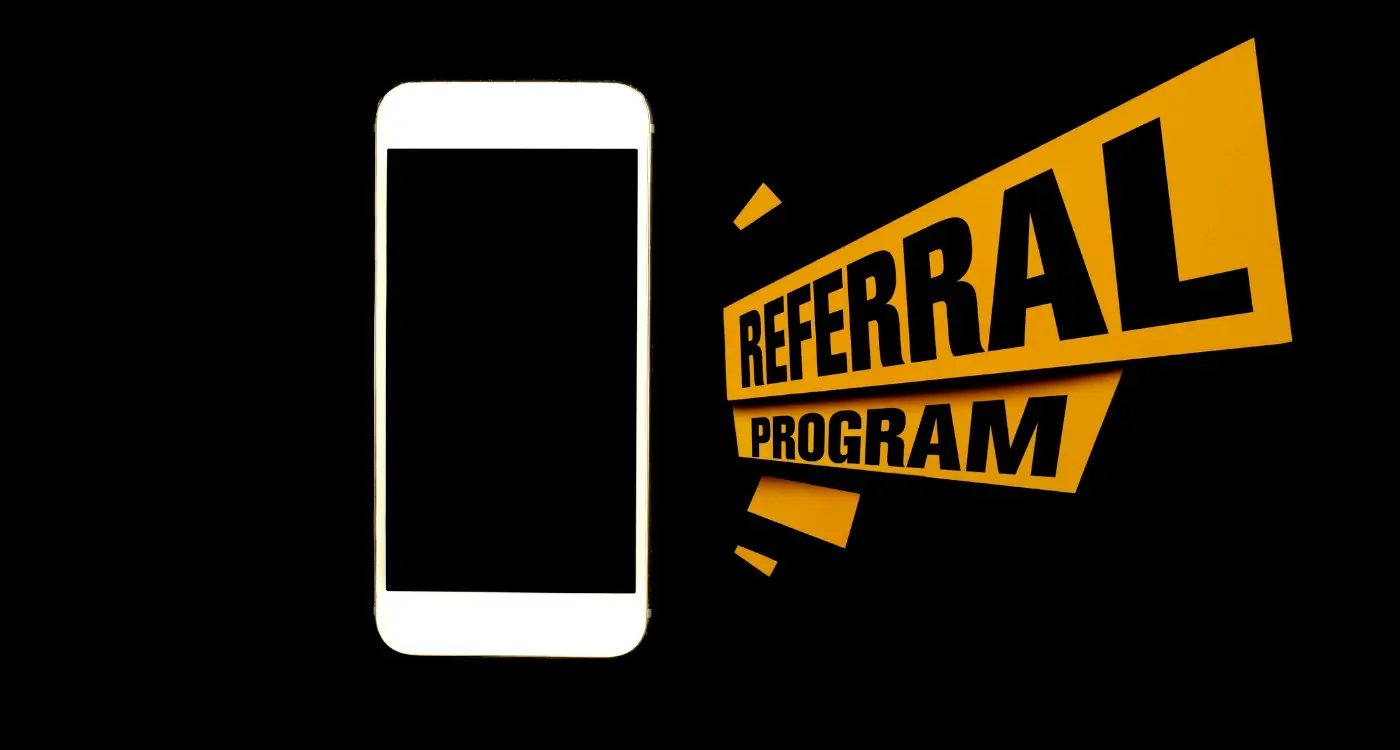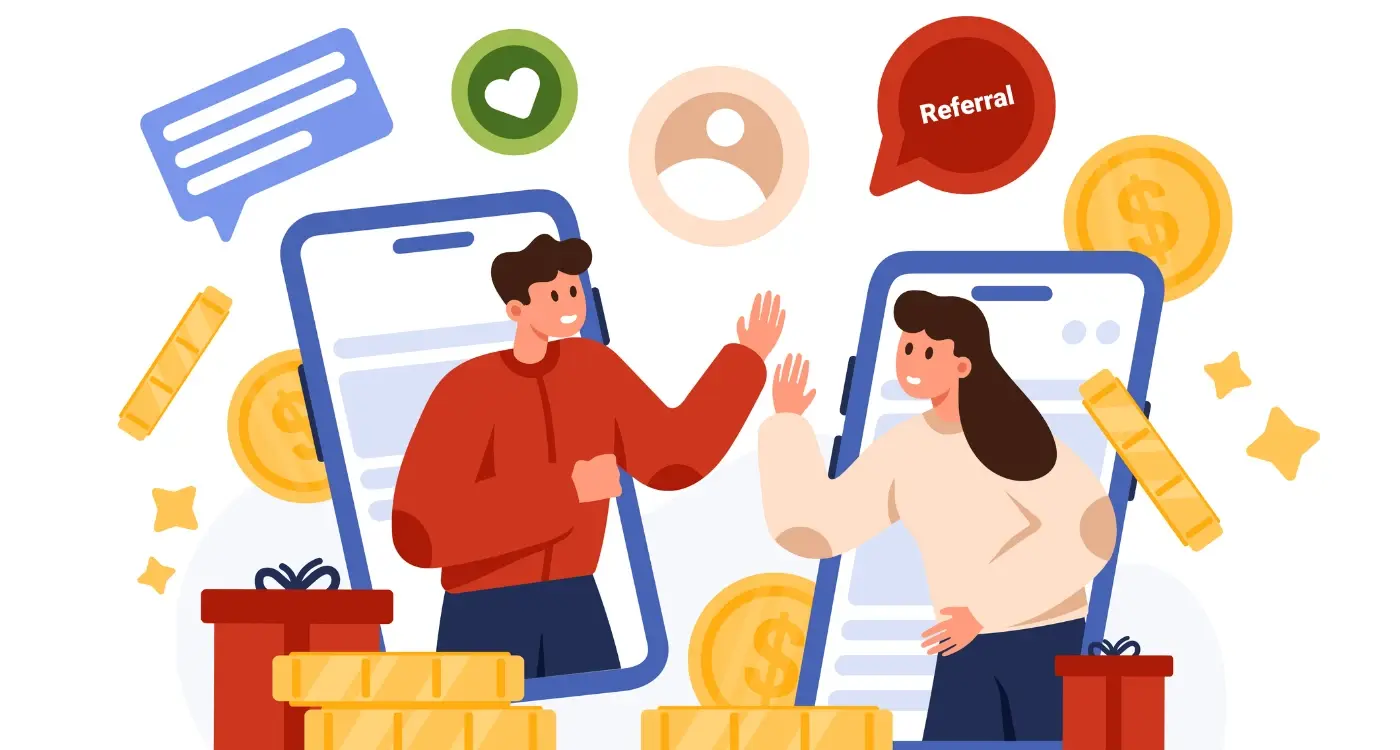What Are The Legal Requirements For App Referral Programs?
A mobile app referral program can boost your downloads by up to 300% according to industry studies—but get the legal side wrong and you could face hefty fines, lawsuits, or even have your app removed from the app stores entirely. The difference between a successful referral program and a legal nightmare often comes down to understanding the rules before you launch.
After working with countless clients who've wanted to add referral features to their apps, I've seen how easy it is to overlook the legal requirements. The excitement of growth potential can blind you to the regulatory minefield you're stepping into. Program regulations vary wildly depending on your location, your users' locations, and even which platforms you're using.
The most expensive mistake you can make is assuming that because other apps are doing something, it must be legal
This guide will walk you through every legal requirement you need to know when creating app referral programs. From disclosure rules and privacy laws to platform-specific guidelines and common pitfalls that could sink your business. We'll cover the regulations that apply across different countries, what terms and conditions you need, and how to stay compliant while still creating an effective referral system that drives real growth.
Understanding App Referral Programs
I've worked with dozens of apps over the years that have used referral programs—and let me tell you, they can be absolute goldmines for user acquisition when done properly. But here's the thing: most people jump straight into building these programs without really understanding what they're getting into legally.
An app referral program is basically a system where your existing users get rewards for bringing new users to your app. Simple concept, right? User A invites User B, User B signs up, and User A gets something nice—maybe credits, cash, or premium features. The new user might get a welcome bonus too.
Common Types of Referral Rewards
- Cash payments or account credits
- Free premium features or subscriptions
- Physical products or gift cards
- Points in a loyalty system
- Exclusive access to new features
Now, what makes these programs so appealing is that they're essentially turning your users into your marketing team. They're more likely to trust a recommendation from a mate than a flashy advert, and you only pay when you actually get a new user.
But—and this is where it gets interesting—the moment you start offering rewards for referrals, you're stepping into a world of legal requirements. Different countries have different rules about what counts as advertising, how you handle personal data, and what you need to disclose to users.
Disclosure Requirements and Transparency Rules
I've worked on enough mobile app projects to know that transparency isn't just nice to have—it's legally required. When you're running referral programs, you can't just hide the fact that people are getting paid or rewarded for bringing in new users. The law is pretty clear about this stuff.
Your app needs to make it obvious when someone is sharing your content because they're getting something in return. This means putting clear labels like "Ad" or "Sponsored" or "Paid Partnership" somewhere people can actually see it. Not buried in tiny text at the bottom of the screen where nobody looks.
Where to Put Your Disclosures
The disclosure has to be close to the referral content itself. If someone shares your app on social media through your referral program, the disclosure should be right there in the post—not hidden away in their bio or in a separate comment. Same goes for your in-app messaging and any emails your system sends out.
Making It Clear for Everyone
Write your disclosures in plain English that anyone can understand. "I get points when you download this app" works much better than some complicated legal jargon. The advertising standards authorities want people to know what's happening without having to decode anything.
Always put disclosures at the beginning of referral content, not the end. People often stop reading halfway through, so front-load your transparency.
Different countries have their own rules about this stuff, but being upfront and honest is pretty much universal. When in doubt, err on the side of being too transparent rather than too sneaky.
Terms and Conditions That Protect Your Business
After years of working with clients on app referral programmes, I can tell you that solid terms and conditions aren't just legal paperwork—they're your safety net. You need clear rules that protect your business from exploitation whilst keeping things fair for genuine users. The key is being specific about what counts as a valid referral and what doesn't.
What Your Terms Must Cover
Your terms should define exactly how referrals work, when rewards are earned, and what happens if someone tries to game the system. I've seen apps get hammered by fake accounts and bot traffic because their terms were too vague. You need to spell out the consequences for fraudulent activity and give yourself the right to investigate suspicious behaviour.
- Eligibility requirements for referrers and new users
- How and when rewards are distributed
- Your right to modify or terminate the programme
- Clear definitions of fraudulent activity
- Dispute resolution procedures
- Geographic restrictions if applicable
Enforcement Powers
Make sure your terms give you enough power to deal with problems. This includes the right to suspend accounts, withhold rewards, and investigate potential fraud. Most people never read terms and conditions anyway, but when disputes arise, you'll be grateful for comprehensive coverage that protects your business interests.
Privacy Laws and Data Collection Compliance
When you're running a mobile app referral program, you'll be collecting personal data from users—and that means privacy laws apply to you. I've worked with countless clients who thought they could just grab email addresses and phone numbers without thinking about the legal side of things. Big mistake! Privacy regulations like GDPR in Europe and various state laws in America have real teeth, and the fines can be absolutely massive.
Your referral program will likely collect names, email addresses, contact lists, and tracking data about user behaviour. Under most privacy laws, you need explicit consent before collecting this information. You can't just hide it in your terms and conditions either—users need to actively agree to data collection with clear, plain language explanations.
Data Processing and Storage Requirements
Once you've collected user data, you become responsible for protecting it. This means secure storage, limited access, and proper deletion procedures when users request it. Many program regulations require you to explain exactly how you'll use referral data and for how long you'll keep it.
The biggest privacy mistake I see with mobile app referral programs is treating user contact lists like your own marketing database—that's a one-way ticket to regulatory trouble
You'll also need to provide users with easy ways to opt out, delete their data, and understand what information you're collecting. Smart developers build these privacy controls directly into their app interface rather than making users jump through hoops to exercise their rights.
Competition Law and Fair Trading Standards
I've seen plenty of app developers get themselves into hot water with competition law—and trust me, it's not something you want to deal with after launch. When you're running a referral programme, you need to make sure you're not crossing any lines that could get you labelled as anti-competitive or unfair to your rivals.
The main thing competition authorities care about is whether your referral scheme creates an unfair advantage or restricts competition in your market. For example, if you're offering such generous rewards that smaller competitors can't possibly match them, you might be accused of predatory pricing or market manipulation.
Key Competition Law Considerations
Fair trading standards also come into play here. Your referral rewards need to be genuine and deliverable—you can't promise the moon and then fail to deliver. I've worked with clients who've had to completely restructure their programmes because they were making claims they couldn't back up.
- Avoid exclusive dealing arrangements that lock users into your platform
- Don't tie referral rewards to anti-competitive behaviour
- Make sure your reward structure doesn't constitute predatory pricing
- Keep detailed records of how you calculate and distribute rewards
The golden rule here is transparency and fairness. If your referral programme would make your competitors cry foul for legitimate reasons, it's probably worth reconsidering your approach before launch.
Platform-Specific Legal Guidelines
Each app store has its own rulebook when it comes to referral programs, and trust me—they're not all singing from the same hymn sheet. Apple's App Store and Google Play Store have distinctly different approaches to how they handle promotional activities within apps, which means your mobile app needs to comply with multiple sets of program regulations simultaneously.
Apple tends to be stricter about in-app promotions and referral schemes. They require clear disclosure of terms, prohibit misleading claims about rewards, and won't approve apps that use referral programs as the primary monetisation method. Google Play is generally more flexible but still demands transparency about how referral rewards work and when users can expect to receive them.
Key Platform Requirements
- Apple App Store: No gambling-style mechanics in referral rewards
- Google Play: Clear reward timelines and redemption processes
- Both platforms: Honest representation of reward values
- Age-appropriate referral mechanics for your target audience
- No spam or excessive promotional notifications
Platform approval isn't a one-time thing either. Both Apple and Google regularly review apps for compliance, and referral programs that worked fine six months ago might suddenly breach updated guidelines. That's why staying current with platform policy changes is part of maintaining legal compliance.
Always test your referral program mechanics against both platform guidelines before launch—what passes on one store might get rejected on the other, and you don't want to discover this after investing development time.
Common Legal Pitfalls and How to Avoid Them
I've seen countless app referral programmes fall flat on their faces—not because they weren't clever or well-designed, but because they walked straight into legal traps that could have been avoided with a bit of forward thinking. The most common mistake? Treating referral programmes like marketing campaigns rather than legally binding agreements.
Let me share the biggest pitfalls that trip up app developers and business owners alike. First up is the classic "we'll sort the legal stuff later" approach. This always backfires. You can't retrofit compliance into a programme that's already running; you need to build it in from day one. Another biggie is copying someone else's terms without understanding what they actually mean or whether they apply to your specific situation.
The Most Dangerous Mistakes
- Failing to clearly state when rewards expire or can be withdrawn
- Not explaining how you'll handle disputes or programme changes
- Ignoring international users and different country laws
- Making promises you can't keep (like "unlimited" rewards)
- Collecting personal data without proper consent
- Not registering your programme where legally required
The solution isn't rocket science. Get legal advice before you launch, test your programme with a small group first, and keep detailed records of everything. Your future self will thank you when you're not dealing with angry users or regulatory investigations.
Conclusion
Building a successful referral program for your mobile app isn't just about offering rewards and watching users share your app—it's about doing it the right way from day one. The legal requirements we've covered aren't suggestions; they're the foundation that keeps your business safe and your users protected.
I've seen too many app developers rush into referral programs without proper legal groundwork, only to face compliance issues later. Trust me, dealing with regulators or platform suspensions after launch is far more expensive and stressful than getting things right from the start. The disclosure requirements, privacy laws, and competition standards we've discussed might seem complex, but they're actually quite manageable once you understand what's expected.
Your referral program should feel natural and trustworthy to users—not like you're trying to hide something. Clear terms, honest disclosures, and respect for user data aren't just legal boxes to tick; they're what build long-term user trust. When users feel confident about sharing your app with friends, your referral program becomes genuinely effective rather than just legally compliant.
Remember, every jurisdiction has its own rules, and program regulations can change. Regular legal reviews and staying updated on platform-specific guidelines will keep your mobile app referral program running smoothly for years to come.
Share this
Subscribe To Our Learning Centre
You May Also Like
These Related Guides

How Do I Prevent Referral Program Fraud in My App?

How Do I Promote My App's Referral Program To Existing Users?



